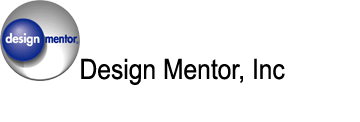Our Milestone Methodology™ technique combines innovation and discipline during product development. With our methodology, projects follow a well-defined series of stages from concept through completion.
To reduce risk, accelerate tangible results, and provide early feedback on design alternatives, we recommend prototyping early and often. As projects progress from concept to production, the cost of making changes increases, often exponentially. At the same time, the impact of decisions on the final outcome of a project is highest at the beginning of the project, exactly when the least is known about the system. By clearly defining requirements and prototyping early and often, we help clients gain more knowledge, make good decisions early, and avoid costly changes late in the project. But we also want to be efficient, and move the project ahead.
Our Milestone Methodology™ technique combines innovation and discipline during product development. Iteration occurs naturally throughout every development cycle. We create early concepts and write requirements, design a prototype of subsystems or the system itself, test the prototype via focus groups or trial users, learn that some of our earliest assumptions were incorrect, and make adjustments for the next stage of development while adhering to regulatory design control requirements and following good engineering practices throughout. The goal is to create the correct product for the target market in as short a time as possible, and in the most capitally efficient manner. To control iteration and provide necessary project discipline, most projects follow a well-defined series of stages:
- Concept
- Feasibility
- Works-Like Prototype
- Works-Like, Looks-Like Prototype
- Pilot Production
- Completion
Each stage builds upon the knowledge gained in the previous stages, while seeking to reduce risk, increase confidence, and reduce overall development time and cost.

